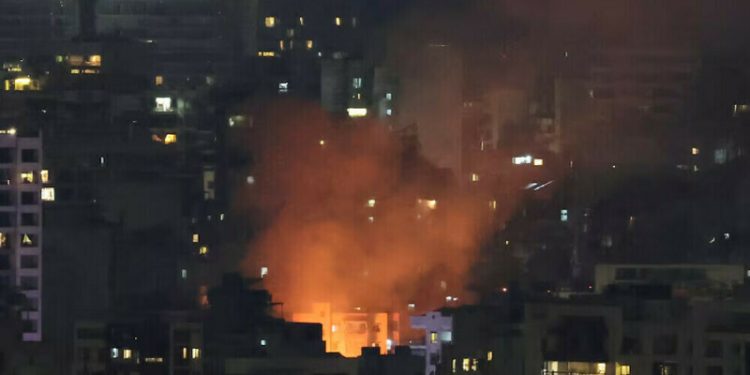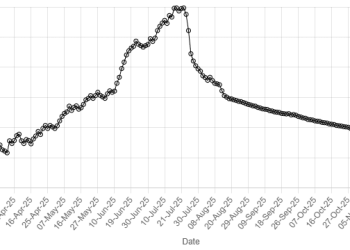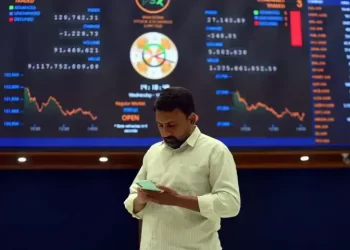BEIRUT: An air strike hit the Lebanese capital’s southern suburbs on Friday, sending plumes of grey smoke into the sky after the Israeli military called for people to evacuate, AFPTV images showed.
Lebanon’s state-run National News Agency said an Israeli drone fired two missiles at the Beirut suburb of Ghobeiry before the air force carried out a “very heavy” strike that leveled a building near municipal offices.
The evacuation order posted on X by Israeli army spokesman Avichay Adraee told residents to leave, warning of imminent strikes.
“All residents in the southern suburbs, specifically … in the Ghobeiry area, you are located near facilities and interests affiliated with Hezbollah,” Adraee said in his post.
“For your safety and the safety of your family members, you must evacuate these buildings and those adjacent to them immediately.”
Israel hits Beirut again, ceasefire terms in focus
His post included maps identifying buildings in the area near Bustan High School.
Repeated Israeli air strikes on south Beirut have led to a mass exodus of civilians from the Hezbollah stronghold, although some return during the day to check on their homes and businesses.
NNA also reported pre-dawn strikes on the southern city of Nabatieh.
The Israeli military said it had struck “command centres” of Hezbollah’s elite Radwan Force and launchers used to fire rockets at Israel on Thursday.
It said that over the past day, the air force had struck more than 120 targets across Lebanon, including weapons storage facilities, command centres and a large number of rocket launchers.
Since September 23, Israel has ramped up its air campaign in Lebanon, later sending in ground troops following almost a year of limited, cross-border exchanges begun by Hezbollah over the Gaza war.
Lebanese authorities say that more than 3,380 people have been killed since October last year, when Hezbollah and Israel began trading fire.
The conflict has cost Lebanon more than $5 billion in economic losses, with actual structural damage amounting to billions more, the World Bank said on Thursday.









